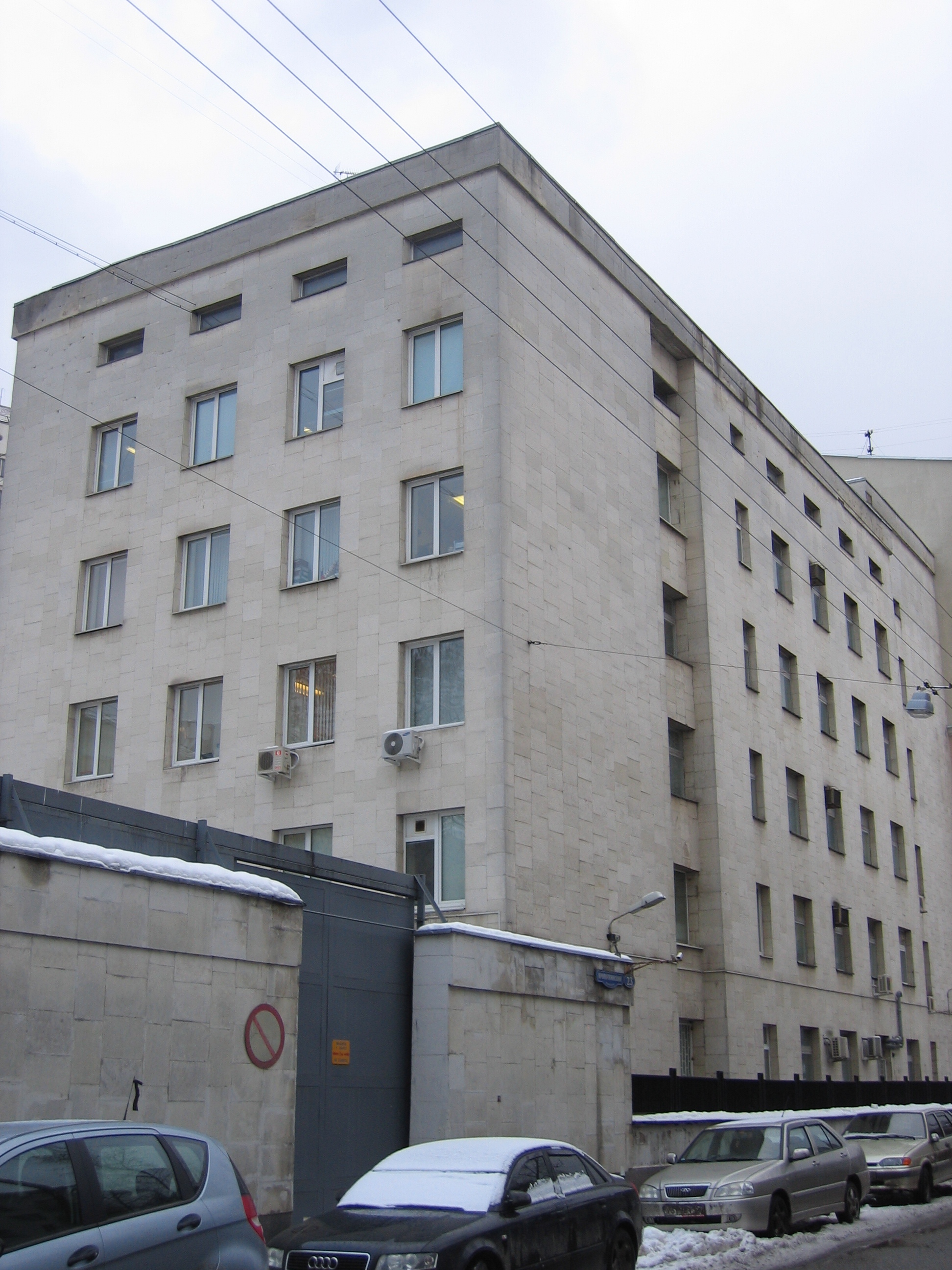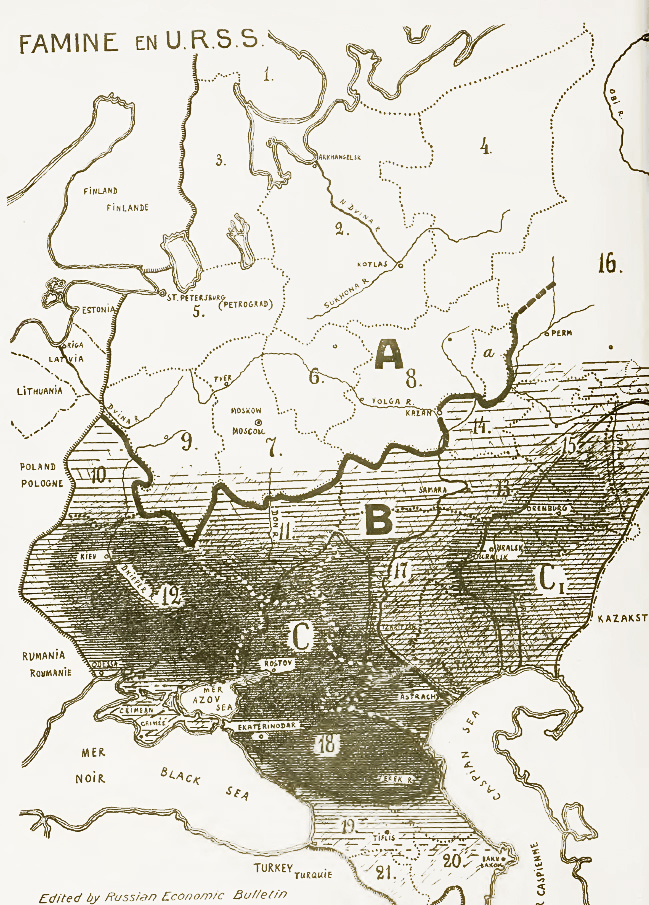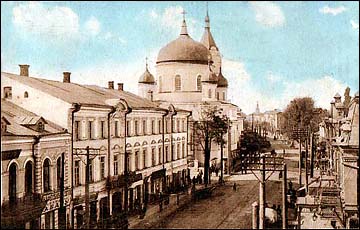|
Vasyl Ovsienko
Vasyl Vasyliovych Ovsienko ( uk, Васи́ль Васи́льович Овсіє́нко; 8 April 1949 – 19 June 2023) was a Ukrainian writer, human rights activist, and Soviet dissident who worked as a member of the Ukrainian Helsinki Group and founded the Kharkiv Human Rights Protection Group. Early life and career Vasyl Vasyliovych Ovsienko was born into a peasant family on 8 April 1949 in the village of Lenino (now ) in the Ukrainian Soviet Socialist Republic of the Soviet Union. He was the ninth and youngest surviving child in his family. His father had received two years of education, while his mother had received no formal education and was illiterate. His maternal family was descended from members of the Polish szlachta. At an early age, Ovsienko became captivated by literature, writing poetry. Some of his works were published in the local ''Star of Polesia'' newspaper. Ovsienko first came into contact with ethnographer in the mid-1960s, and was introduced t ... [...More Info...] [...Related Items...] OR: [Wikipedia] [Google] [Baidu] |
Ukrainian SSR
The Ukrainian Soviet Socialist Republic ( uk, Украї́нська Радя́нська Соціалісти́чна Респу́бліка, ; russian: Украи́нская Сове́тская Социалисти́ческая Респу́блика, group=note), abbreviated as the Ukrainian SSR, UkrSSR, or UkSSR, and also known as Soviet Ukraine, was one of the constituent republics of the Soviet Union from 1922 until 1991. In the anthem of the Ukrainian SSR, it was referred to simply as ''Ukraine''. Under the Soviet one-party model, the Ukrainian SSR was governed by the Communist Party of the Soviet Union through its republican branch: the Communist Party of Ukraine. The first iterations of the Ukrainian SSR were established during the Russian Revolution, particularly after the Bolshevik Revolution. The outbreak of the Ukrainian–Soviet War in the former Russian Empire saw the Bolsheviks defeat the independent Ukrainian People's Republic, after which they fou ... [...More Info...] [...Related Items...] OR: [Wikipedia] [Google] [Baidu] |
Political Abuse Of Psychiatry In The Soviet Union
There was systematic political abuse of psychiatry in the Soviet Union, based on the interpretation of political opposition or dissent as a psychiatric problem. It was called "psychopathological mechanisms" of dissent. During the leadership of General Secretary Leonid Brezhnev, psychiatry was used to disable and remove from society political opponents ("dissidents") who openly expressed beliefs that contradicted the official dogma. The term "philosophical intoxication", for instance, was widely applied to the mental disorders diagnosed when people disagreed with the country's Communist leaders and, by referring to the writings of the Founding Fathers of Marxism–Leninism—Karl Marx, Friedrich Engels, and Vladimir Lenin—made them the target of criticism. Article 58-10 of the Stalin-era Criminal Code, "Anti-Soviet agitation", was to a considerable degree preserved in the new 1958 RSFSR Criminal Code as Article 70 "Anti-Soviet agitation and propaganda". In 1967, a weaker l ... [...More Info...] [...Related Items...] OR: [Wikipedia] [Google] [Baidu] |
National Museum Of The Holodomor-Genocide
The National Museum of the Holodomor-Genocide (), formerly known as the Memorial in Commemoration of the Holodomor-Genocide in Ukraine, is Ukraine's national museum and a centre devoted to the victims of the Holodomor of 1932–1933, a man-made famine that killed millions in Ukraine. The museum was opened on the day of the 75th anniversary of the Holodomor in 2008. It gained the status of a national museum in 2010. The museum is located on the Pechersk Hills on the right bank of the Dnieper river in Kyiv, adjacent to the Kyiv Pechersk Lavra. History On 28 November 2006, the Parliament of Ukraine (Verkhovna Rada) voted to recognize the Holodomor, a devastating famine which took place in the early 1930s in the former Ukrainian Soviet Socialist Republic, as a deliberate act of genocide against the Ukrainian people. The bill was signed into law by President Viktor Yushchenko and included a provision for commemorative and research activities, and the construction of memorials to ... [...More Info...] [...Related Items...] OR: [Wikipedia] [Google] [Baidu] |
Holodomor
The Holodomor ( uk, Голодомо́р, Holodomor, ; derived from uk, морити голодом, lit=to kill by starvation, translit=moryty holodom, label=none), also known as the Terror-Famine or the Great Famine, was a man-made famine in Soviet Ukraine from 1932 to 1933 that killed millions of Ukrainians. The Holodomor was part of the wider Soviet famine of 1932–1933 which affected the major grain-producing areas of the Soviet Union. While scholars universally agree that the cause of the famine was man-made, whether the Holodomor constitutes a genocide remains in dispute. Some historians conclude that the famine was planned and exacerbated by Joseph Stalin in order to eliminate a Ukrainian independence movement. This conclusion is supported by Raphael Lemkin. Others suggest that the famine arose because of rapid Soviet industrialisation and collectivization of agriculture. Ukraine was one of the largest grain-producing states in the USSR and was subject to unre ... [...More Info...] [...Related Items...] OR: [Wikipedia] [Google] [Baidu] |
Anti-Soviet Agitation
Anti-Soviet agitation and propaganda (ASA) (russian: антисове́тская агита́ция и пропага́нда (АСА)) was a criminal offence in the Soviet Union. To begin with the term was interchangeably used with counter-revolutionary agitation. The latter term was in use immediately after the first Russian Revolution in February 1917. The offence was codified in criminal law in the 1920s, and revised in the 1950s in two articles of the RSFSR Criminal Code. The offence was widely used against Soviet dissidents. Stalin era The new Criminal Codes of the 1920s introduced the offence of ''anti-Soviet agitation and propaganda'' as one of the many forms of counter-revolutionary activity grouped together under Article 58 of the Russian RSFSR Penal Code. The article was put in force on 25 February 1927 and remained in force throughout the period of Stalinism. Article 58:10, "propaganda and agitation that called to overturn or undermining of the Soviet regime", was pu ... [...More Info...] [...Related Items...] OR: [Wikipedia] [Google] [Baidu] |
Zaporizhzhia Oblast
Zaporizhzhia Oblast ( uk, Запорі́зька о́бласть, translit=Zaporizka oblast), also referred to as Zaporizhzhia ( uk, Запорі́жжя, links=no), is an oblast (province) of southeast Ukraine. Its capital is Zaporizhzhia. The oblast covers an area of , and its population is . This oblast is an important part of Ukraine's industry and agriculture. Most of the area of the oblast has been under Russian military occupation since the 2022 Russian invasion of Ukraine, including all of the coast, although the capital and the majority of the population remains under Ukrainian administration. On 30 September 2022 Russia annexed the Donetsk (Donetsk People's Republic), Luhansk (Luhansk People's Republic), Zaporizhzhia, and Kherson Oblasts. However, the referendums and subsequent annexations are internationally unrecognized. Geography The area of the oblast is 27,183 km²; its population (estimated as of 1 January 2013) was 1,785,243. Important cities Import ... [...More Info...] [...Related Items...] OR: [Wikipedia] [Google] [Baidu] |
Zhytomyr Oblast
Zhytomyr Oblast ( uk, Жито́мирська о́бласть, translit=Zhytomyrska oblast), also referred to as Zhytomyrshchyna ( uk, Жито́мирщина}) is an oblast (province) of northern Ukraine. The administrative center of the oblast is the city of Zhytomyr. Its population is approximately . History The oblast was created as part of the Ukrainian Soviet Socialist Republic on September 22, 1937, out of territories of Vinnytsia and Kyiv oblasts as well as two border okrugs of Kyiv Oblast – Korosten Okrug and Novohrad-Volynsky Okrug. The oblast covers territories of the historic regions of Polesia, Volhynia, and Podolia, which are reflected on the oblast's coat of arms. Before the 18th century bigger half of the oblast belonged to the Kyiv Voivodeship (), while smaller western half around the city of Zviahel belonged to the Volyn Voivodeship. Following the treaty of Andrusovo, the city of Zhytomyr () continued to act as an administrative center of the Kyiv Vo ... [...More Info...] [...Related Items...] OR: [Wikipedia] [Google] [Baidu] |
Amnesty International
Amnesty International (also referred to as Amnesty or AI) is an international non-governmental organization focused on human rights, with its headquarters in the United Kingdom. The organization says it has more than ten million members and supporters around the world. The stated mission of the organization is to campaign for "a world in which every person enjoys all of the human rights enshrined in the Universal Declaration of Human Rights and other international human rights instruments." The organization has played a notable role on human rights issues due to its frequent citation in media and by world leaders. AI was founded in London in 1961 by the lawyer Peter Benenson. Its original focus was prisoners of conscience, with its remit widening in the 1970s, under the leadership of Seán MacBride and Martin Ennals to include miscarriages of justice and torture. In 1977, it was awarded the Nobel Peace Prize. In the 1980s, its secretary general was Thomas Hammarberg, succeeded ... [...More Info...] [...Related Items...] OR: [Wikipedia] [Google] [Baidu] |
Oksana Meshko
Oksana Yakivna Meshko ( uk, Оксана Якiвна Мешко, 30 January 1905 — 2 January 1991) was a Ukrainian human rights activist and Soviet dissident who on 9 November 1976 became one of the co-founders of the Ukrainian Public Group to Promote the Implementation of the Helsinki Accords, colloquially known as the Ukrainian Helsinki Group. Meshko was born in 1905 in Stari Sanzhary, currently Poltava Oblast, Ukraine. Her father was executed in 1920 in the aftermath of the Civil war. Meshko graduated in 1931 with chemistry degree in Dnipropetrovsk. During the studies, she married Fedir Serhiienko, they had two sons, Yevhen and Oleksandr (Oles). Her husband was jailed in 1935, released in 1936 but could not find a job in Dnipropetrovsk and moved to Tambov. In 1937 Meshko, who was working in the chemical lab of an agricultural institute, lost her job and moved with the children to Tambov. During the war, her son Yevhen was killed by a bomb, and her husband was mobilized and r ... [...More Info...] [...Related Items...] OR: [Wikipedia] [Google] [Baidu] |
Vasyl Stus
Vasyl Semenovych Stus ( uk, Васи́ль Семе́нович Стус; 6 January 1938, Rakhnivka, Ukrainian SSR – 4 September 1985, Perm-36, Kuchino, Russian SFSR) was a Ukrainian poet, translator, literary critic, journalist, and an active member of the Ukrainian dissident movement. For his political convictions, his works were banned by the Soviet regime and he spent 13 years in detention until his death in Perm-36—then a Soviet forced labor camp for political prisoners, subsequently The Museum of the History of Political Repression—after having declared a hunger strike on September 4, 1985. On November 26, 2005, the Ukrainian president Viktor Yushchenko posthumously awarded him the highest national title: Hero of Ukraine. Stus is widely regarded as one of Ukraine's foremost poets. Biography Vasyl Stus was born on January 6, 1938, into a peasant family in the village of Rakhnivka, Haisyn Raion, Vinnytsia Oblast (modern Ukraine) (province), Ukrainian SSR. The following ... [...More Info...] [...Related Items...] OR: [Wikipedia] [Google] [Baidu] |
Radio Free Europe/Radio Liberty
Radio Free Europe/Radio Liberty (RFE/RL) is a United States government funded organization that broadcasts and reports news, information, and analysis to countries in Eastern Europe, Central Asia, Caucasus, and the Middle East where it says that "the free flow of information is either banned by government authorities or not fully developed". RFE/RL is a private, non-profit 501(c)(3) corporation supervised by the U.S. Agency for Global Media, an independent government agency overseeing all U.S. federal government international broadcasting services. Daisy Sindelar is the vice president and editor-in-chief of RFE. RFE/RL broadcasts in 27 languages to 23 countries. The organization has been headquartered in Prague, Czech Republic, since 1995, and has 21 local bureaus with over 500 core staff and 1,300 stringers and freelancers in countries throughout their broadcast region. In addition, it has 700 employees at its headquarters and corporate office in Washington, D.C. Radio Free E ... [...More Info...] [...Related Items...] OR: [Wikipedia] [Google] [Baidu] |
Zhytomyr
Zhytomyr ( uk, Жито́мир, translit=Zhytomyr ; russian: Жито́мир, Zhitomir ; pl, Żytomierz ; yi, זשיטאָמיר, Zhitomir; german: Schytomyr ) is a city in the north of the western half of Ukraine. It is the Capital city, administrative center of Zhytomyr Oblast (Oblast, province), as well as the administrative center of the surrounding Zhytomyr Raion (Raion, district). The city of Zhytomyr is not a part of Zhytomyr Raion: the city itself is designated as its own separate raion within the oblast; moreover Zhytomyr consists of two so-called "raions in a city": Bohunskyi Raion and Koroliovskyi Raion (named in honour of Sergey Korolyov). Zhytomyr occupies an area of . Its population is Zhytomyr is a major transport hub. The city lies on a historic route linking the city of Kyiv with the west through Brest, Belarus, Brest. Today it links Warsaw with Kyiv, Minsk with Izmail, and several major cities of Ukraine. Zhytomyr was also the location of Ozerne (air base) ... [...More Info...] [...Related Items...] OR: [Wikipedia] [Google] [Baidu] |


.png)
_Zhitomir_Province%2C_Ukraine.jpg)



